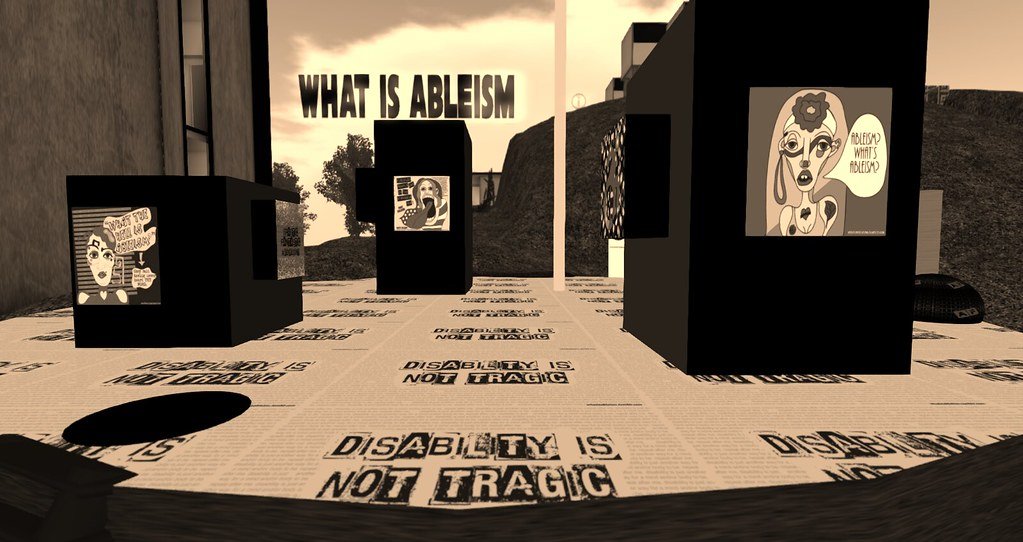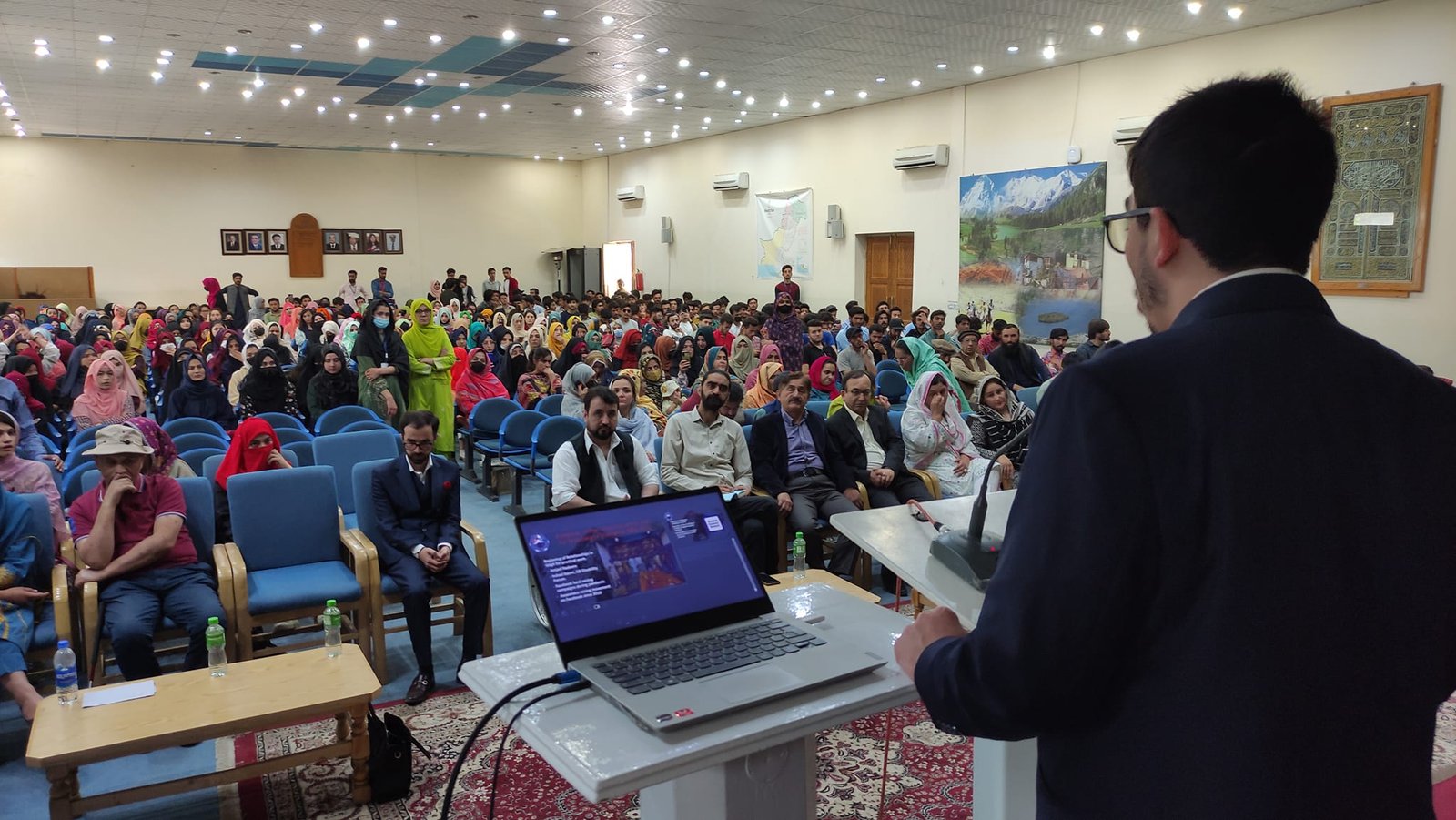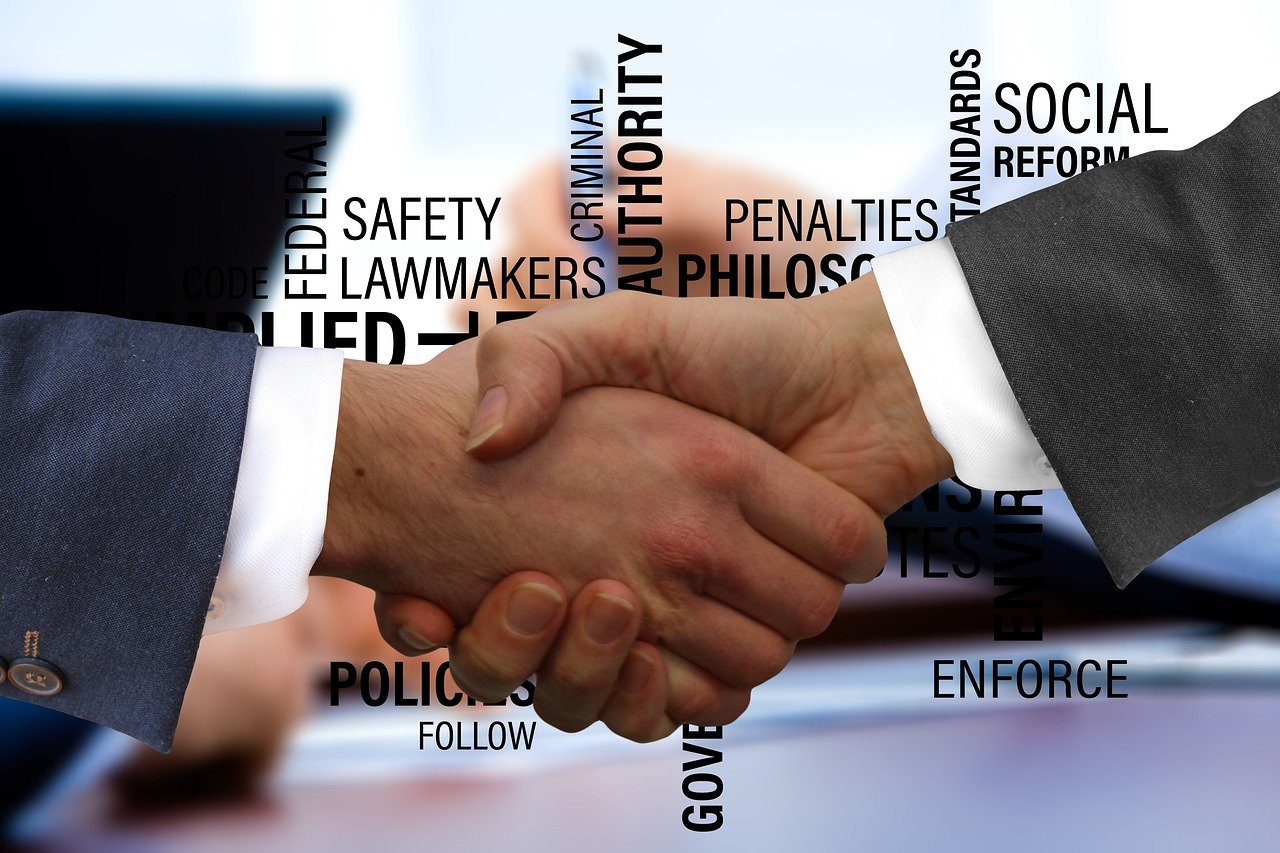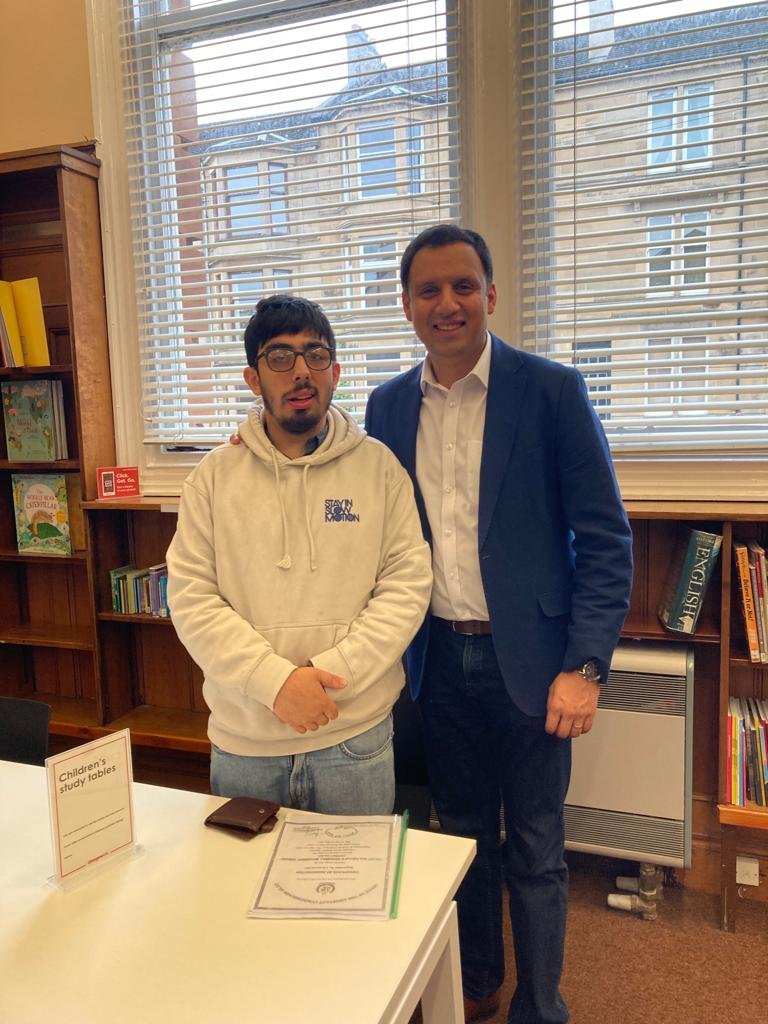Nepotism and Favouritism in Gilgit Baltistan. Persons with Disablities.
In the Podcast by Glasgow Disablity Alliance, I realized that Persons with Disablities must express their voice more clearly and bluntly. While I do not believe conflict is the right course of action, one must promptly reform their behavior if they are doing something wrong. This is the philosophy of Life. One’s ethics and conduct determine their social capital, whether they are unable to socialize, communicate, and network within their society, etc.
In Gilgit Baltistan, someone comes into or goes into power regardless of their intellectual level and freedom of thought. Dr. Saranjam Baig highlights that in Gilgit Baltistan, we (the people) are often scared of talking about such issues as ‘ they’ might look upon this as anti-state or anti-government. While we are in no position to change past circumstances, we can do it in the future https://www.facebook.com/ibexmedianetwork/videos/539903361567231
Nepotism
While I am no one to judge or measure nepotism, the thing is that it benefits a few, not many. We have to change our ideology, precisely regarding persons with disablities. I am not accusing anyone, certainly not a disabled person, but is it not apparent that the 18 crore and 66 lakhs suited someone’s agenda rather than disabled people themselves https://gbgoodwillmovement.com/the-recent-passage-of-the-budget-by-the-gilgit-baltistans-government/. This has to stop. Pakistan is a developing country, but the awareness of persons with disablities needs more investment.
Favoritism
Once you have a nepotistic state of mind, favoritism is your right hand. I should not be saying this, but this also happens in Gilgit Baltistan. This is unethical as some organizations working for Persons with disablities have some other expertise than others, as some might work on
- Spinal Cord injuries
- Cerebral Palsy
- Visual Impairments
- Intellectual disablities such as autism
Long term consequences
Due to nepotism and favoritism, disabled people often
- Lose out on vital funding.
- Mistrust officials
- Create an environment where there is misinformation/disinformation
- Lose out on important gains being made in the struggle to achieve fully disabled rights.
Review of Care About Us Podcast.
I want to thank Jamila Shaikh of The Glasgow Disablity Alliance for giving me the honor of writing a review on the Glasgow Disability Alliance Podcast Care About Us, which can be found on Spotify, https://podcasters.spotify.com/pod/show/care-about-us.
About the organization.
The Glasgow Disablity Alliance, which I happen to be a member of, is the largest organization of disabled members in Europe and a leading, celebrated example of a grassroots community of identity driving improvements to disabled people’s lives in parallel with more comprehensive changes to policies, services, and society https://gda.scot/. It has many forums within the organization, including The BAME Network, which will be discussed later on, Drivers for Change, a Social Policy Reformist Group of Disabled Individuals, and many others you could browse in your own time.
Clash of Ideologies
Though the heading may be misleading, in this podcast, we heard the stories of disabled people who are predominantly white. While this is not meant to suggest a racial difference, it is intended to indicate how our South Asian mentality towards Persons with Disablities needs to be more apparent and voiced. For instance, the members of this podcast are Scottish and know how to communicate about such a situation, just like Rosie.
I have mentioned on my social media feed that the Scottish Disabled Youth expressed themself freely in numerous events held by the GDA https://www.facebook.com/ardi.baig/posts/pfbid02yW9TQFeCgivvFUk8r53UhHvexGUWrYufxiP1RK4cWkX1dXbeniSfxGdyG8Peitiql. Why is it the case that we do not hear of the Stories of South Asian in these communities forums? Is it because we are excluded from such meetings? NO! Rather the opposite.
Fighting against the status quo of mentality – ذہنیت
It is because we do not consider this to be an issue. Where one disabled person calls for the reform of a policy, one is suppressed, said Jamila Shaikh, GDA Official. Unlike in Gilgit Baltistan, which to an extent has been influenced by European culture through the likes of German writers publishing books on the subject, and other influences, there are sociopolitical factors that need to be discussed when discussing the issues of South Asian Persons with Disablities in the UK, including :
- Geographical boundaries
- Social settings
- Selected Morals, Values, and Belief systems
- Lack of reading culture.
I find the 4th one the most critical factor in determining this due to the lack of information we receive. For example, I just recently found out about the BAME society.
Jamila Shaikh’s vision for the GDA BAME society.
I recently met Jamila at the start of 2023, and I think we both understand the challenges for BAME society. To be clear though I am a member, I volunteer at the BAME society and help Jamila in certain events. Jamila’s work spans nearly two decades, first at the Royal National Insitute of Blind People and now at the GDA. Though her work covers dealing with
- Refugees.
- Women, particularly in the Punjab regions (Indian Punjab and Pakistani Punjab)
- Asylum seekers,
no one has supported this be it from any South Asian community.
GBGM commitment to the GDA
Though our organization is young in nature, our platform https://gbgoodwillmovement.com can be used for the promotion of the Glasgow Disablity Alliance and find commonalities with the GDA’s BAME Group in Glasgow.
If anyone wants to email Jamila, please contact her at : jamila@gdaonline.co.uk
Copyright of Image: GDA, 2023
Ableism in action – Why does it happen?
As the Pakistani poet Habib Jalib said, ‘ I refuse to acknowledge, I refuse to accept.’ Not to misrepresent Jalib, but perhaps he didn’t realize that a positive side of Gen Zia ul Haque was, in effect, that he eliminated ableism to a certain extent. That is pretty much all one can say about what Gen Zia ul Haque did that was positive – but that can be debated, and we do not want to go down the political route. I hope this acts as a guide for some to identify ableism.
Refusing to accept that society has an ableist nature
I recently reflected upon some experiences that my friends, both in Gilgit and the UK, told me of how they were discriminated against in the societies that they live in. Ableism is alive and kicking, but like everything, one cannot fully prove that ableism happened in one’s community. Yes, sentiments can hurt, but they cant be provable in a court of law. So what are some of the signs that one can notice which can indicate ableism?
Signs of Ableism
- Being empathetic for no good reason
- Rejecting one’s feelings (emotionally), be it in whichever way possible.
- Inconsiderate of Disabled people
Power versus disabled people.
Even the most left-wing character Karl Marx describes an ideal man to be ‘
the ‘ ideal man ‘[1] is someone ‘ who can coordinate certain cognitive and physiological abilities’ . So can we say that Lenin or Stalin were Marx’s ideal men or Putin be over the top. I think not and one of the point that I was alluding to in another article is society needs to get out of this zone where disabled people are all poor and must be all good Morality and Governance – How PWDS are respected – Why is this? Fear?. NO!
We do not need to keep giving disabled people just charity but also give them the skills to achieve something.
[1] Steffan Bengtsson, Out of the frame: disability and the body in the writings of Karl
Marx, Scandinavian Journal Of Disability Research, 2017. Page 154.
Lessons from AKDN – How can we learn lessons to further disablity development?
Belated Salgirah Mubarak to all the Ismaili community members around the world! Many will celebrate the Aga Khan’s work, which Ismailies call their Hazir Imam. While GB Goodwill Movement does an interfaith community-based job within the Gilgit Baltistan region: if one were to talk of successful projects in GB, one would need to mention the Aga Khan’s Work within the area, from schools to local hospitals within GB. AKDN’s works play a significant part in the lives of the citizens of Gilgit Baltistan, specifically Hunzais. Nevertheless, as organizations, what are the lessons that can be taken from AKDN?
Embracing Diversity and Inclusiveness
One of His Highness’ quotes is, ‘ We can not make the world safe for democracy until we also make the world safe for diversity. ‘ At Goodwill, we are just advocating for the rights of persons with disabilities. Period. We do not expect to have special rights: but the inalienable rights are given to each man and woman (quoted from the US Constitution, 1789). PWDs should be able to work and contribute to society regardless of gender, religion, or sexuality.
The thing is, though: there is a moral Panic
Moral Panic – Not needed
A moral panic is a situation where the media hypes a scenario, and citizens assume that the media shows the truth, and that is it. We know in the case of Pakistan, specifically on the issues, Persons with Disablities are shown to be the lowest of the lowest class, where this is no intellect and PWDs are poor. In the Gilgit Baltistan context, many individuals, including those featured here on the Stories of the Resilient https://gbgoodwillmovement.com/blog/, have achieved masters and degrees but are not employed due to a lack of awareness in society, and due to this so-called Moral Panic.
Another example would be that of Gilgit Baltistan Disabled Scholar Fazal Amin Beg, who, despite his disability, has the intellect but could not go on to further education https://fazalamin.com/biography/ due to societal pressures around PWDs in Pakistanhttps://pamirtimes.net/2019/01/02/renowned-researcher-fazal-amin-baig-launches-website-to-make-his-work-available-online/.
Calling for support for Persons with Disablities
Like AKDN, local disabled organizations need the support of people. In another quote by His Highness, he said, ‘We must explore every opportunity to have different faiths come together in addressing the problems of our respective societies.’ Societies must come together to solve issues for Persons with Disablities. No matter whether you live in Karachi, London, or Sydney, the individual has a responsibility towards all communities and societies.
Join us in supporting our mission.
Stories of the resilient – Ghulam Muhammad Baig
If we can not compete within the circle, why bother competing? Why should one get an opportunity if one can not strive to work hard? Something like that is similar to my story.
My name is Ghulam Muhammad Baig. Currently, I live in Glasgow, Scotland, with my family. Initially, I am from Hunza, Gilgit Baltistan. I am going into my final year at the University of Strathclyde Glasgow, hopefully graduating with a BA Honours Major in Politics and a Minor in History. I started my education in Pakistan and then moved with my family to Glasgow, Scotland, UK, at age seven in 2006.
Living in a Pakistani family setting with a disability is different than other cultures. Though even in Pakistan, we were living in a privileged household, with my father being an army doctor in the Pakistan armed forces: the lack of awareness within South Asian Households and especially within the military, as it deals with minor and significant injuries was quite surprising. Yes, you do have to realize that it is a part of society, but the fact that many men were injured in wars, you would expect some greater awareness within the military establishment. However, moving on, I went to Sesame school in Abbottabad, and then later on, when we moved to Rawalpindi, I attended the Umeed E Noor School in Islamabad, which the Hashoo Foundation, now a close ally of this organization (https://gbgoodwillmovement.com). Though not fully aware but by then, I had started being aware that I have got some disabilities in the form of difficulties in speaking, eating, walking, handwriting, and doing things with my hands.
Then when I came to the UK, I started to attend a special needs school called Kelbourne Primary, where I studied there for five years. Those five years were really important in improving my language and communication skills. The support I got there in the form of education, speech therapy, hydrotherapy, physiotherapy, and occupational therapy transformed some of my disabilities into abilities. After completing primary school, I went to a special needs secondary school named Ashcraig Secondary School where I spent six years. The years at Ashcraig were more challenging, mentally and physically. This school had students from different cultural backgrounds, and I had real difficulties coping with my peers. However, I learned from errors and mistakes and gained confidence by the sixth year, to the extent that I was able to speak on any issue in front of the whole school, and many of my teachers were happy with me. After acquiring the necessary qualifications set by the Scottish Qualifications Authority (SQA), I was able to be enrolled in the social sciences course at the City Of Glasgow College where I graduated in 2021. I am interested in the social sciences because I want to investigate how society functions, what are the different attitudes within society, and what are the different hurdles/barriers in society
How did Goodwill Movement Begin?
During the time of the Coronavirus Pandemic, when we were all locked at home and had nothing else to do apart from watching TV and using social media, it was the time I decided that I should help and campaign for the disabled community of Gilgit Baltistan in whatever capacity I can and this is where the idea of creating the Goodwill movement came from.
When I look at the experiences of disabled persons in Pakistan and compare it to the UK, here, society treats its disabled community equally. As a disabled student studying at the City of Glasgow College, I can say that the disability issue in Gilgit Baltistan has remained a long-term neglected issue.
Initially, I did primary research on the disability issue in Gilgit Baltistan by contacting two well-renowned disabled rights activists, Irshad Kazmi and Amjad Nadeem who provided me with an insight into the disabled community of Gilgit Baltistan.
According to them, the government of Gilgit Baltistan has attempted to address this issue by involving Nadeem and Kazmi in the decision-making process, but we collectively feel that the issues faced by the disabled community cannot be solved solely by the government. I even supported Nadeem’s work and projects by creating a local volunteer team and funding them for their projects via Facebook fundraisers.
Where does Goodwill Now stand
Though the idea of fundraisers is very effective, I and a few other activists https://gbgoodwillmovement.com/about-us/ established the Goodwill Movement so that at the same time as persons with disabilities are receiving aid in terms of food, water, medicines, and shelter, PWDs can receive free training and more importantly it is the first IT centre for Adult PWDs, so that Persons with Disablities could gain the opportunities just like the opportunities that I gained in the UK.
To read more on it, please visit https://gbgoodwillmovement.com and to keep supporting our projects please visit https://gbgoodwillmovement.com/donate-us/.
Donation policies can be found here : https://gbgoodwillmovement.com/which-actors-play-a-role-in-inclusive-policymaking/
Thank You!
What causes fear to spread – social Contagion for Persons with Disablities?
We, as disabled people, identify that there is a social contagion for Persons with Disablities in Gilgit Baltistan, but what are the barriers?
Anecdotal evidence
One of the things that persons with disablities feel in all parts of the world is that someone presents anecdotal evidence that might be true to their scenario but not to anyone else’s. For instance, Ali has learning difficulties; all learning difficulties have disablities; therefore, disabled people have learning difficulties. This is not a truth. In fact, this is called a false syllogism in the school of philosophy.
In our region, mainly growing up with Hunzai Grandmothers, ‘they ‘ share stories of disabled people who might have mental health difficulties, but this is not to say they were wrong; this is to say that they might not have accessed the proper facilities or no facilities were available at that time.
Childhood memories shape your present opinions.
Because multiple millennials and older people did not socialize with the disabled populous, that’s why in Gilgit Baltistan, you see a generation of elderly persons or older adults not being able to communicate with a disabled person and vice versa, which contributes more towards a higher frequency of intellectual disablities within Gilgit Baltistan.
Please don’t assume that it is our fault.
But then, people, ‘ government officials, ‘can not be blamed because no one has tried to engage these people together within a society when you have seventy-five generations not being taught how to socialize with disabled people: the problems for PWDs arise.
Disabled rights are Human rights
Please do not judge me when I claim that despite the political upheaval, ableists are abusing the human rights of Disabled people, not knowing it is their fault. International organizations such as Amnesty International must stand up for disabled rights in Pakistan as the ableist class is just treating disabled people like how feudal lords would treat their serfs in Europe..
Together we need to eradicate this fear factor from Gilgit Baltistan society.
Morality and Governance – How PWDS are respected – Why is this? Fear?
My earlier articles have outlined the basic steps toward ethical governance. However, what ethics is can be debated. The world that we live in is of social media trends versus reality. In other words, while reading this, you may also listen to an Andrew Tate video, an Ali Zafar song, or a podcast. But we have lost this unique touch of fighting for a cause. If you were like me, who grew up in the mid-2000s, you knew what equality was. For example, speaking up against animal rights or the Arab Spring – A Political Social media revolution. However, if I look at the trends of today: it is not fighting about. How would it matter to me if a social media influencer makes 1000 + videos with 550 million subscribers?
As a society, we have no sense of community like we used to. So why am I talking about this? Like the food chain, Persons with Disablities are the marginalized of the marginalized. That’s a fact. If no one is affected, no one has to do anything about it. Right. Wrong! This is misleading and puts us on a dangerous road ahead for PWDs.
Family and Freinds
We should discuss morality because I think it starts from the home. As sociologist Talcott Parsons says, ‘ The nuclear family fits the more complex industrial society better. ‘ Most families, even though they might have different complexities are nuclear families. For 80% to 90% of families, I can say that discussing disability is more like discussing the elephant in the room. It is uncomfortable, but it does not have to be.
In an earlier article by Fatima, we read how a disabled person like Mumtaz yearned for people to listen to his story and as well as feeling sympathy for him, feeling like to bring a positive change in society https://gbgoodwillmovement.com/stories-of-the-resilient-mumtaz-ali/. Many family members and friends support Mumtaz’s story, and others like him – a good support network. Otherwise, in Pakistan, a good support network is hard to find. Even if it is, they might mock you or backbite about you.
Whereas in the UK, it is the same but more sugarcoated or sometimes may be blunter about it, but I feel your friends and family are the ones that guide you or should guide you in your life. But why is there a need? Why? When one can compete with you, intellectually or otherwise, why is there a need to have this charity model of thinking as Fatima or Mumtaz described it then?
Fear
I think a central part of this is fear in the context of Pakistan and elsewhere: especially in Gilgit Baltistan, where I believe the culture, if not identical, is very similar to a pan-European culture where there was a similar moral panic in the 1980s when the AIDS crises hit Europe, more specifically Britain. I am not comparing AIDS to disability in the slightest way, but after all, it is a medically termed chronic disease. Fearmongering can be of different volumes – indirect or direct. A 2014 report entitled the difficulties of PWDs in Gilgit Baltistan highlights issues of PWDs, mainly highlighting the lack of awareness within the region https://www.slideshare.net/AleenaKhan11/situationanalysisofpwdingilgitbaltistan2014, and I think fear is the X variable while Y is disability development. There might be a correlation, but it is affected by family relationships and in effect it is a social disease within itself that we need to question.
Moral actions are just as important as ethical governance, and this will affect governance, but it is how we deal with this fear in our families and societies about disability that is a challenge.
Which actors play a role in Inclusive PolicyMaking?
Now that we have defined what ethical governance should look like, I want to refocus on which actors, both state and nonstate, can play a part in inclusive policymaking for PWDs.
Donor Agencies
Gilgit Baltistan is a very remote region of Pakistan; some would even argue that it is smaller than Chitral as this is associated with KPK province and the government of Pakhtunkhwa. Nevertheless, GB has established institutions such as the Aga Khan Programmes under AKDN that could work on this issue, but due to a lack of resources and inclusive representation within AKDN, it can not achieve all its aims for the local communities.
Similarly, other local organizations work within their remit but can’t due to a lack of funding, and I would say for all organizations, including the GBGM, Government funding should be the top priority. As I said in an earlier article, all local (international disabled organizations) receive allotted funding from regular bodies. I used the example of the Glasgow Disablity Alliance,https://gbgoodwillmovement.com/growth-and-stability-for-persons-with-disabilities/, which highlights that GDA gets funding from the EHR commission, The community fund, and the Bank of Scotland: which are local governmental and private entities: should the 18 Lakh PKR in the recent budget not have included a subclause relating to the employment of PWDs? https://gbgoodwillmovement.com/the-recent-passage-of-the-budget-by-the-gilgit-baltistans-government/
Donors
After being in the NGO work for more than two years, I can now fully say that, like business partners, we need donors who can trust us and who can trust us with blind trust, and we can build that trust. Visiting Pakistan and traveling back and forth to the West, we imagine that not everything is legit in Pakistan, but the same thing can be said of the UK or US. Two examples that come to mind are the FDA’s crackdown on Shkreli drugs and Boris Johnson’s PartyGate scandal.
Though these examples seem far-fetched, nothing is 100% perfect, be that in the West. However, coming back to our NGO, donors must be assured that follow-ups about their donation will be met within 1 to 2 days of the donation. If people want to contribute in the short term, that is also fine. People can make queries about their donations. Our emails are checked daily so donors can follow up or specify where they want to spend their contribution or even for further information.
So please feel free to donate to our cause: https://gbgoodwillmovement.com/donate-us/
Paypal policies
Though Paypal is our preferred Payment option, this is an international standard as NPOs such as the Khan Academy even use PayPal.
Researchers/Academics or students
Or if anyone does not fit into these categories, they might want to advocate for GBGM using other methods. As they say, the Pen is mightier than the sword. Some may use the Pen to support GBGM. Academics who want to research this field or students should contact us as this topic is unique in the Gilgit Baltistan Context. We would help you with your primary source research or secondary source research.
What Ethical Governance within Pakistan should mean for Disabled People
After meeting Anas Sarwar yesterday, I had some more reflections I thought would be helpful to share with people who interact with Persons with Disabilities daily.
Networking in Scotland with the Scottish Labour Party Leader.
On the request of the CEO of Gilgit Baltistan’s Goodwill Movement – GBGM, Mr. Ghulam Muhammad Baig was hosted by Mr Anas Sarwar, local Scottish Labour Party leader and leader of the joint opposition in the Scottish Parliament. Mr Sarwar is the first Scottish Pakistani Labour Leader to serve in the Scottish Parliament and has served in the past in the National Health Service as a dentist, serving the local community.
Mr. Sarwar said,’ This is an opportunity for us to work together on the disability issue in Pakistan and Scotland.’ Mr Sarwar agreed to support the GBGM in his capacity. Mr. Baig thanked him for his support. Other items which were discussed on the agenda were: How can we work together for the disabled community and the other was how can they create a positive image of disabled South Asians within their community.
Some of the main points which were discussed were how both parties could contribute to disability awareness among Scottish South Asians, creating a positive image of South Asians Persons with Disablities in Scotland, and how they can further this aim in Gilgit Baltistan and Pakistan.
If every opposition party leader entertained GBGM, as Anas Sarwar did, then we would have been a more inclusive society in Gilgit Baltistan.










